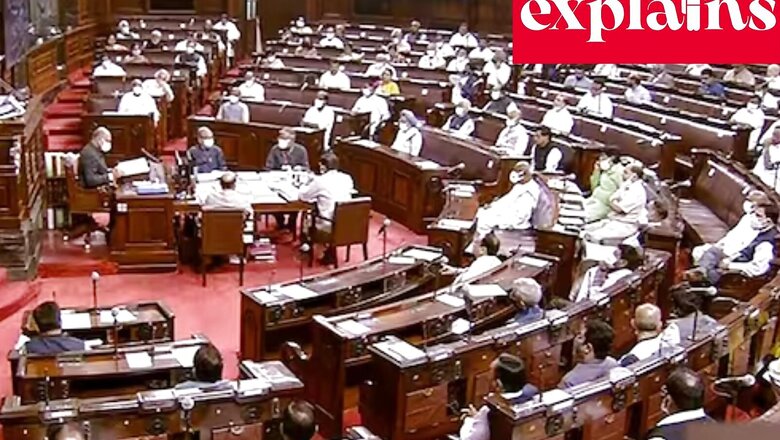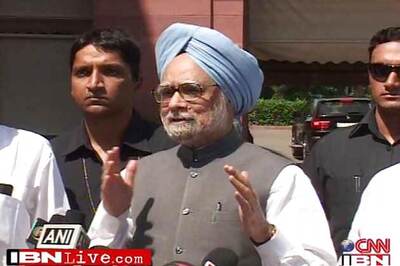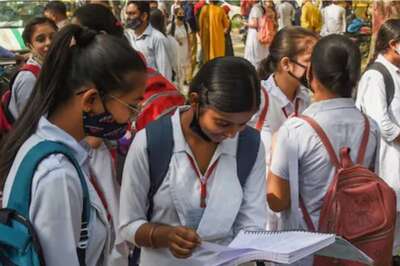
views
Recent Rajya Sabha protests by opposition members demanding a debate on China’s incursion on Indian borders have repeatedly disrupted proceedings in the Upper House. Chairman Jagdeep Dhankhar announced on Monday that he had received nine notices under Rule 267 requesting the suspension of the listed business and the commencement of a discussion or debate on the matter specified.
Rejecting all the nine notices, Dhankhar stated he cannot give attention to any notice that is “deficient” or that “miserably fails minimum requirement of the fulfilment of rules”.
“The Chairman has the powers and can allow a discussion,” Congress President Mallikarjun Kharge said in response to the rejection of all notices.
What exactly is Rule 267?
“Any member may, with the consent of the Chairman, move that any rule be suspended in its application to a motion related to the business listed before the Council of that day, and if the motion is carried, the rule in question shall be suspended for the time being,” according to Rajya Sabha Rule 267.
It means that, under Rule 267, MPs can take up a discussion on urgent issues of public importance while deferring the Upper House’s scheduled business for the day.
It goes on to say that “the Chairman alone has the power to consent to the moving of a motion for suspension of a rule, and it is up to the House to decide whether a particular rule should be suspended or not.”
However, this rule will not apply “where specific provisions for suspension of a rule under a particular chapter of the Rules already exist.”
Who can issue Rule 267?
Under Rule 267, any Rajya Sabha member may request a discussion on any subject from the Chairperson.
When was Rule 267 last invoked?
It was last used in November 2016, when the Upper House invoked Rule 267 to debate demonetisation.
Is Rule 267 the only way to bring important issues to the House’s attention?
A member of Parliament can raise issues and request a response from the government in a variety of ways. During Question Hour, an MP may ask a minister any question about any issue, and the minister must respond either orally or in writing.
During Zero Hour, an MP may bring up the issue. Every day, 15 MPs may raise issues of their choosing during the Zero Hour. It can even be raised during Special Mention by an MP. A Chairman may allow up to seven Special Mentions per day.
Otherwise, the MP can bring the issue to the attention of the government during other discussions, such as the debate on the President’s speech. Opposition leaders have also used the Budget debate to launch political attacks on the government.
So, why is the opposition so adamant about Rule 267?
Because all other business would be put on hold to discuss the issue of national importance, any discussion under Rule 267 takes on great significance in Parliament.
No other type of discussion necessitates the suspension of other business. When an issue is admitted under Rule 267, it means it is the most pressing national issue of the day. Also, the government will have to respond to the matter by replying during the discussions under Rule 267.
Read all the Latest Explainers here



















Comments
0 comment